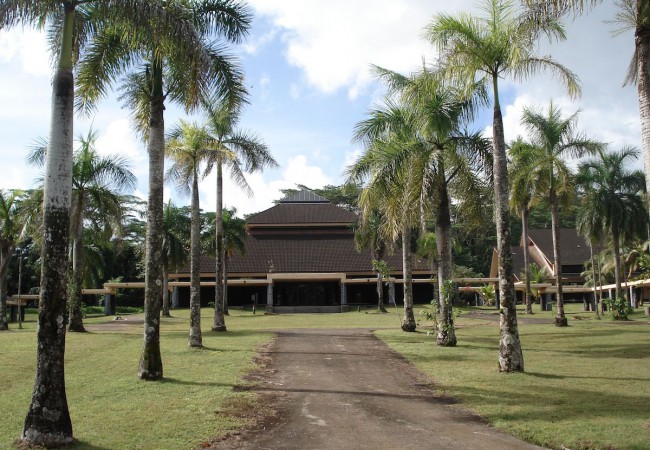
Micronesian elections
The Federated States of Micronesia conducted an election on March 5, 2013 to choose members of the 18th Congress as well as the Governor and Lieutenant Governor of Chuuk State. At press time, nine of the ten incumbents in the 17th Congress have been re-elected with only Roger Mori of Chuuk being defeated by challenger Victor Gouland, a political newcomer.
The Congress of the FSM is a 14-member body, with four at-large members elected for four years (one for each state of the federation) and ten for two-year terms. This election was for the two-year members.
On March 13, the national election director certified the results for the states of Yap, Pohnpei and Kosrae. For those states the incumbents were re-elected. Here are the results:
Yap: Isaac Figir
Pohnpei: Dohsis Halbert, Berney Martin, David Panuelo
Kosrae: Paliknoa Welly
The national election director certified the results for Chuuk on March 14— listing the winners of the Congressional race as: Florencio Harper, Victor Gouland, Bonciano Nethon, Tiwiter Aritos, and Tony Otto. Defeated incumbent Roger Mori is challenging the results.
On Pohnpei challenger Fernie Perman is also challenging the result in Election District 1, where incumbent Dohsis Halbert was declared the winner. As a result boxes at three precincts were recounted on March 28).
The election shows the weight of the overseas votes. Roger Mori lost his seat by about 60 votes. He was behind in Hawaii by about 160 votes. In other words if it were not for Hawaii he would have won. This leads to genuine questions being raised about overseas votes and this may be taken up by the next Congress. The concern is that voters who do not know local conditions are determining the outcome of elections.
For the state gubernatorial election in Chuuk, incumbent Johnson Elimo was leading but failed to obtain the majority (50% + 1 votes). He will therefore have to face second-placed challenger Alex Narruhn in a run-off election on April 5.
Overall the election was peaceful. The challenges to the results are being dealt with according to law and regulations. This is actually a matter of pride for the FSM where elections by-and-large have been peaceful matters without violence, and where the transitions of power since independence in 1986 have been smooth.
The 18th Congress will convene on May 11 2013, and has the power to determine once and for all the new members, should the disputes be still unresolved.

Update: As of April 5, there is still no official announcement of the tally of the recounted boxes in Pohnpei although all indications point to no change in result, which was Dohsis Halbert winning in Election District 1.
The election gave rise to an interesting development. For the first time a traditional leader got involved extensively in the election. The traditional leader of Sokehs, the area covered by Election District 1 revoked the traditional title of Candidate Halbert unless the latter agreed not to run for office any more, which of course the candidate refused. This is the first time anything of this sort has happened. It was a major blow for the candidate because the title Sounmatau was a particularly prestigious one, being the title of the leader of the Sokehs Rebellion against the Germans in 1911. The psychological impact was akin to the sovereign of England revoking a duke’s title. There is of course nothing illegal about the move but it does raise questions about the position of traditional leaders in a democratic system.